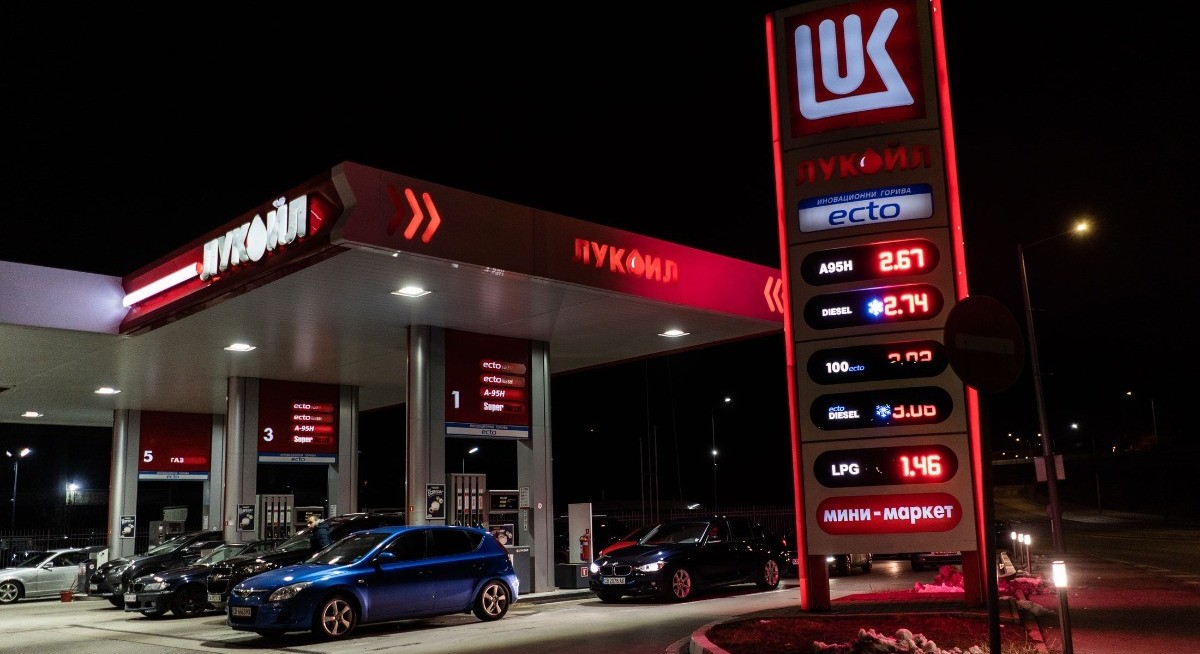The problem appeared until last week to have a neat solution, with the energy merchant Gunvor Group having agreed a deal to acquire Lukoil’s international assets. But that process was thrown into disarray on Thursday when the US Treasury called Gunvor the Kremlin’s “puppet”. The trader withdrew from the transaction, adding urgency to efforts to keep the Russian firm’s assets running.
“There’s quite a scramble going on to work out how to handle Lukoil’s overseas assets, particularly since the US Treasury rejected Gunvor’s bid to take them all over,” said Richard Bronze, head of geopolitics at Energy Aspects Ltd, a consultant. “While global crude markets have a decent buffer available to absorb any supply disruptions, the picture is quite different for the refining sector.”
In recent days, the first signs of a pinch from sanctions have begun to emerge.
Lukoil has declared force majeure at an Iraqi oil field that accounts for about one in ten of all barrels pumped in the country while two state companies have taken over operations to ensure the deposit’s output can carry on.
See also: Shell profit misses on lower crude prices, weak oil trading
Likewise, Bulgaria took a step towards taking full control of the country’s largest refinery in an effort to keep it running and protect jobs. In Finland, some filling stations are running out of fuel after a company owned by Lukoil stopped receiving deliveries, according to local media.
Lukoil didn’t respond to a request for comment, sent outside normal business hours.
Flexibility
See also: Oil rises on flare-up in US-Iran tensions and inventory decline
Several countries are pressing the US to provide a licence to enable Lukoil assets to keep running after Nov 21, something that the Trump administration has done elsewhere with sanctioned Russian assets.
But if extensions aren’t granted this time around, it could cause a ripple effect across crude and fuel markets.
Officials in Bulgaria say they’ve been in talks with the US Treasury since sanctions were first implemented in a bid to keep the 195,000 barrel-a-day Burgas refinery operating. The plant is the largest in southeast Europe and been subject to a longstanding sale process that is yet to yield a result.
In neighbouring Romania, people familiar with the matter said the country may consider asking for an extension of the Nov 21 deadline, though it was yet to take that step. They said that nationalising Lukoil’s Romanian assets — which include the 50,000 barrel-a-day Petrotel refinery — were viewed as a last resort.
Moldova’s government, meanwhile, plans to buy a fuel depot from Lukoil to ensure smooth operations at the airport in the country’s capital, Chisinau, Energy Minister Dorin Junghietu said in a Facebook statement last week. It has also asked for an exemption to the measures that would push beyond the Nov 21.
The government “is negotiating with Lukoil so that supply of petroleum resources isn’t affected,” Junghietu said in a separate post on Monday. “It’s now [the] company’s responsibility to carry out all actions urgently.”
The reason for concern about fuel supplies is a stark one — while benchmark crude futures are trading close to US$60 a barrel in Europe, diesel prices are closer to US$95.
To stay ahead of Singapore and the region’s corporate and economic trends, click here for Latest Section
Prices have jumped since the sanctions on Lukoil and Rosneft PJSC were announced, which came in the middle of an annual period of global refinery maintenance that usually curtails supply. The boss of TotalEnergies SE said last month that he felt oil prices were underestimating the impact of the restrictions.
There are some exemptions to the restrictions. Deals involving Kazakhstan’s Caspian Pipeline Consortium received a general licence that will waive the measures for related transactions. Lukoil owns stakes in two fields in the country, as well as a share of the pipeline that transports its oil for export.
But the reach of the company’s operations remains significant.
Its Geneva-based trading arm, Litasco, was already feeling the impact of sanctions after being shunned by banks and other commodity dealers following the announcement of sanctions.
Lukoil also owns a minority share of a refinery in the Netherlands. In Italy, where Lukoil has 50 gas stations mostly in the south of the country, the government is monitoring the situation, according to people with knowledge of the matter. It also has a deal to take a portion of the fuel from the ISAB refinery in Sicily which is used in the company’s local filling stations.
Even without major nearby oil fields or refineries, the company’s retail brand extends as far as North America. There are about 200 Lukoil-branded filling stations throughout New York, New Jersey and Pennsylvania. There are listings on its website for five new franchise sites, with bids due before the first of December.
It’s a reminder of the risk to fuel prices closer to Washington DC than Moscow.
“The theme is ‘inflict maximum pain on Putin but not on US motorists,’” said Bob McNally, president and founder of consultant Rapidan Energy Advisors LLC. “I doubt DC will make it easy for Lukoil to adapt to sanctions unless it somehow threatened to curtail enough crude and/or products to push global prices up.”
Uploaded by Felyx Teoh




